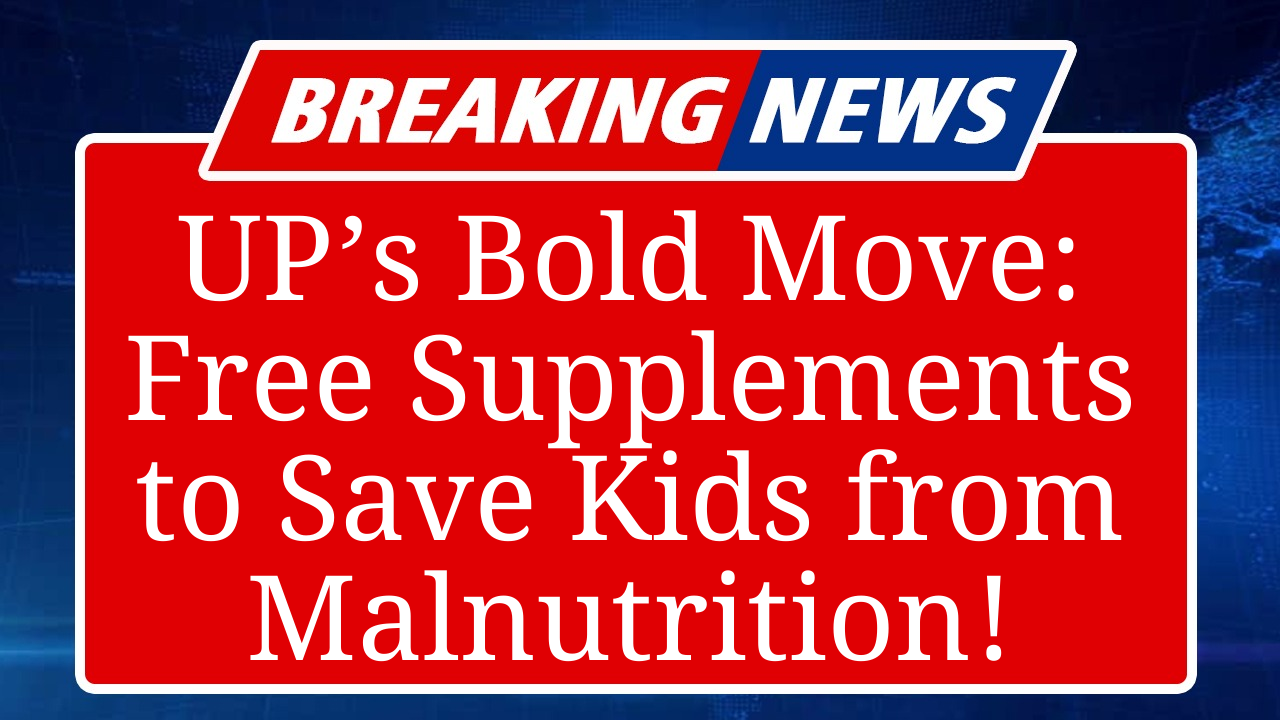Uttar Pradesh’s new initiative to provide free nutritional supplements to children aims to tackle malnutrition across the state. Targeting kids under five, the program distributes micronutrient powders and ready-to-use therapeutic foods to address stunting, wasting, and deficiencies. With rising malnutrition rates, the scheme seeks to improve health outcomes, supported by community health workers and local partnerships.
Uttar Pradesh Rolls Out Free Nutritional Supplements for Children
In a significant step to address the growing concern of child malnutrition, the Uttar Pradesh government has launched a statewide program to provide free nutritional supplements to children under five. The initiative, rolled out in early 2025, focuses on combating undernutrition, including stunting, wasting, and micronutrient deficiencies, which affect millions of children in India. According to the National Family Health Survey (NFHS-5), over 35% of children under five in Uttar Pradesh are stunted, and nearly 17% suffer from wasting, highlighting the urgency of the issue.
The program distributes micronutrient powders (MNPs) and ready-to-use therapeutic foods (RUTFs), such as nutrient-dense pastes made from peanuts, milk powder, and essential vitamins. These supplements are designed to meet the nutritional needs of malnourished children, promoting weight gain and healthy development. The state has partnered with organizations like UNICEF and the World Food Programme (WFP) to ensure the quality and availability of these products. Community health workers, including Accredited Social Health Activists (ASHAs), are tasked with identifying at-risk children through screenings using tools like the Malnutrition Universal Screening Tool (MUST).
The initiative targets rural and underserved areas, where poverty and lack of access to nutritious food exacerbate malnutrition. In 2022, global estimates indicated that 149 million children under five were stunted, with India bearing a significant burden. Uttar Pradesh, with its large population, is a critical focus for such interventions. The program also emphasizes breastfeeding promotion and parental education on balanced diets to complement the supplement distribution.
Health officials report that over 500,000 children have been screened since the program’s inception, with 120,000 receiving supplements in the first phase. The state plans to expand coverage to reach 2 million children by mid-2026. Local health centers are equipped to monitor progress through regular weight and height measurements, ensuring timely interventions for children showing no improvement.
The initiative draws inspiration from successful global models, such as Bangladesh’s microbiota-directed food supplements, which have shown promise in boosting growth by supporting gut health. However, challenges remain, including supply chain logistics and the need for sustained funding. Experts stress that while supplements are vital, addressing underlying issues like poverty and food insecurity is crucial for long-term impact.
Disclaimer: This article is based on recent reports and data from credible sources, including government announcements, UNICEF, WHO, and the National Family Health Survey. Information is accurate as of September 2025 and subject to change. Always consult healthcare professionals for personalized nutritional advice.

